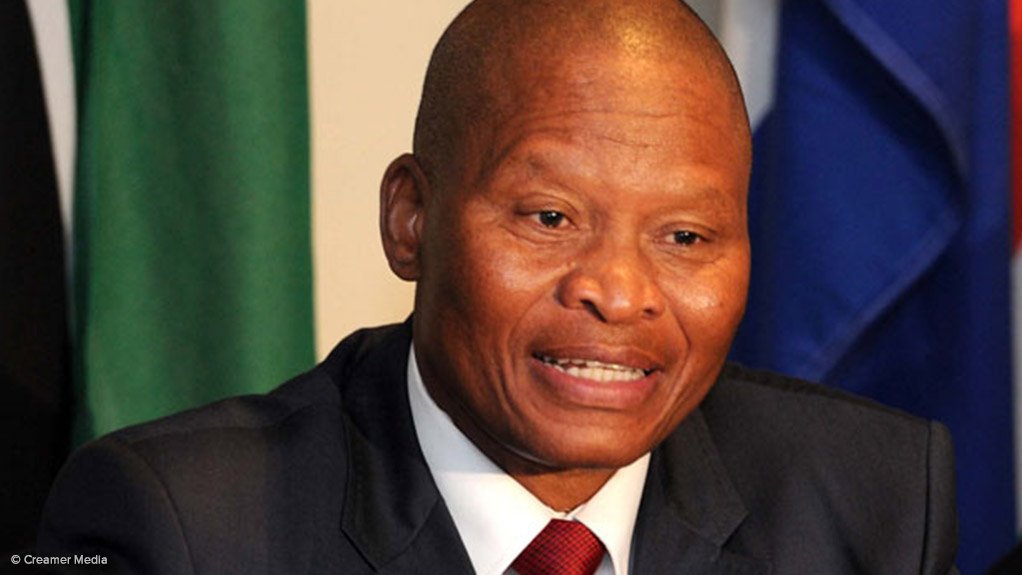Western Cape Judge President John Hlophe has accused Chief Justice Mogoeng Mogoeng of "instigating" the complaint which is now set to be investigated by a tribunal, which can either impeach, sanction or dismiss based on the charges against him.
Mogoeng, in July, recommended that a tribunal be established to investigate the serious claims made against Hlophe by his deputy, Judge Patricia Goliath, who, in January, lodged a 14-page complaint in which she accused him of gross misconduct.
Of her allegations - which included attempting to influence the appointment of judges perceived as "favourably disposed" to former president Jacob Zuma to preside over the so-called Earthlife Africa case involving the nuclear deal, as well as preferential treatment for his wife, Judge Gayaat Salie-Hlophe - Mogoeng recommended a tribunal investigate three of the serious claims.
These were the alleged assault on Judge Mushtak Parker, which he himself denied, despite an unsigned affidavit filed with a fellow judge to the contrary; the use of abusive language for allegedly calling Goliath a "rubbish" and "a piece of shit" when he chased her out of his chambers in 2017; and abuse of power in relation to the office of the deputy judge president by appointing a "very junior judge" to act on his behalf, instead of Goliath.
A counter-complaint lodged by Hlophe against Goliath was dismissed by Mogoeng.
Now Hlophe, in a yet-to-be-aired interview with The Insight Factor, a show scheduled to launch this weekend, accused the Chief Justice of instigating the complaint against him.
"He, through Patricia Goliath, encouraged Judge Parker to file a false complaint of assault against me. Judge Parker has gone public and denied that he was assaulted by me," Hlophe said in a teaser shared on Twitter by the show's co-host Thabo Makwakwa.
Goliath had, in her complaint, charged that Hlophe had physically assaulted an unnamed colleague on the Bench, claiming that the judge wanted to proceed with a criminal complaint, but was persuaded by another to not go ahead with it.
Parker was later identified as the judge in question, and agreed with Hlophe's denial of the attack. But 15 of Parker's colleagues, in affidavits, said he had until February consistently "told the same assault story".
According to an unsigned affidavit written for Parker by Judge Derek Wille, an angry Hlophe had gone to Parker's chambers on 25 February 2019 and accused him of "wanting to 'screw' his wife", Judge Gayaat Salie-Hlophe.
Parker was allegedly punched in the chest, causing him to fall, the document read. He ostensibly hit a book cabinet with his back, breaking the key and injuring himself.
Two complaints against Parker, who some of his colleagues had refused to work with after accusing him of lying of the assault, were referred to the Judicial Conduct Committee.
Last week, the Judicial Service Commission (JSC) said it would advise that President Cyril Ramaphosa suspend Parker pending the finalisation of complaints against him.
Hlophe in the interview also claimed that the allegation that he had plotted to have Goliath killed was "yet another deliberate and desperate attempt to tarnish my reputation".
He asked:
"I can assure you it won't fly. It is nonsense. Why would I want to kill a non-entity and make her a martyr?"
According to a Judicial Inspectorate for Correctional Services (JICS) report cited by GroundUp, a "senior judge" had allegedly contracted two men to assassinate a colleague through a third party for R3-million.
The hit was supposedly called off, but the would-be assassins still demanded money and were allegedly paid R200 000.
Hlophe and Goliath were later identified in a report by Daily Maverick.
The Judge President through his lawyer, Barnabas Xulu, called the averments "baseless and false".
Hlophe in the interview also spoke about racism he experienced as well as other black judges and members of the legal profession.
He said he had compiled a report which contained a number of instances of racism, in which he had mentioned "big names".
Hlophe also commented on land occupation.
"People have no land, they have no dignity. They sleep under bridges, it's cold, they are desperate. What do you expect? That person is going to see an empty piece of land that is unoccupied and that person is going to move in and put up an informal settlement," he said.
And, he added, he hated referring to informal structures as "shacks".
"These are residences. It's our people who live there. And we must give them dignity.
"If we continue to say these are shacks, it is actually derogatory. I prefer to call it a house. That's what it is."
News24 requested comment form the Office of the Chief Justice. This would be added once received.
EMAIL THIS ARTICLE SAVE THIS ARTICLE
To subscribe email subscriptions@creamermedia.co.za or click here
To advertise email advertising@creamermedia.co.za or click here











